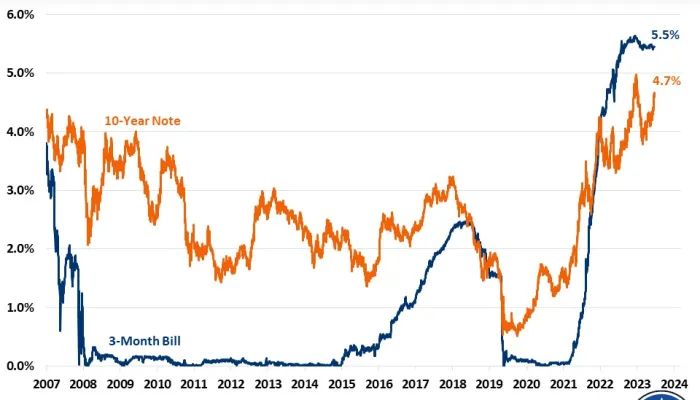JP Morgan on the Financial Perspective of Fiscal Policy
In a recent report, JP Morgan summed up a number of reasons, from a financial perspective, on why it is important for the Joint Select Committee on Deficit Reduction (or Super Committee) to "Go Big" and exceed their savings mandate of $1.5 trillion. The report warns that markets will be closely watching the committee's work, as fears that stagnant economic growth may persist are mounting in the face of inaction on the nation's debt.
First, the report notes that while the Budget Control Act (BCA) made progress on the debt, it is not enough to stabilize it, assuming a current policy baseline. If the tax cuts are extended, physician payments are frozen instead of cut by 30 percent, and the AMT is indexed for inflation, the report says that an additional $3.5 trillion on top of the initial BCA savings is needed. It stresses the importance to both markets and businesses of having government debt on a downward path, seeing this magnitude of savings as the only way to do so. (On a related note, the report states that financial markets would not consider the war drawdown to be legitimate savings, going back to a point we made in our paper about what we hope to see from the Super Committee that using savings from policies already in place should not count as new deficit reduction.)
Second, the report makes a point that is often made but sometimes overlooked in the budget world: growth matters. It claims that financial markets are focused on deficits and debt as an issue related to growth, and the reverse in that slower growth can worsen the debt to GDP ratio:
While we are hopeful that the US economy recovers more quickly, if the [Super Committee] doesn’t reach $1.5 trillion in deficit reduction with the promise of more to come, there would be no room for error, and a chance of another round of downgrades.
They also point out the Reinhart-Rogoff findings of 90 percent gross debt-to-GDP as the point where debt can really drag on growth.
Also, JP Morgan stresses the importance for markets of addressing entitlement reform, observing that markets are becoming increasingly worried about the growth of entitlement spending relative to other spending. It notes that entitlements have been taking up an increasing share of the budget (especially due to health care spending) and that high debt levels can lead to a "crowding out" of investment-oriented spending, such as for education, infrastructure, and technology.
Among other concerns, the report warns that the failure to account for long-term entitlement spending obligations contributes to the uncertainty of the country's economic future. Financial markets are keeping their eyes on the Super Committee, as debt reduction is critical to future growth and market stability.
Click here to read the full report.


